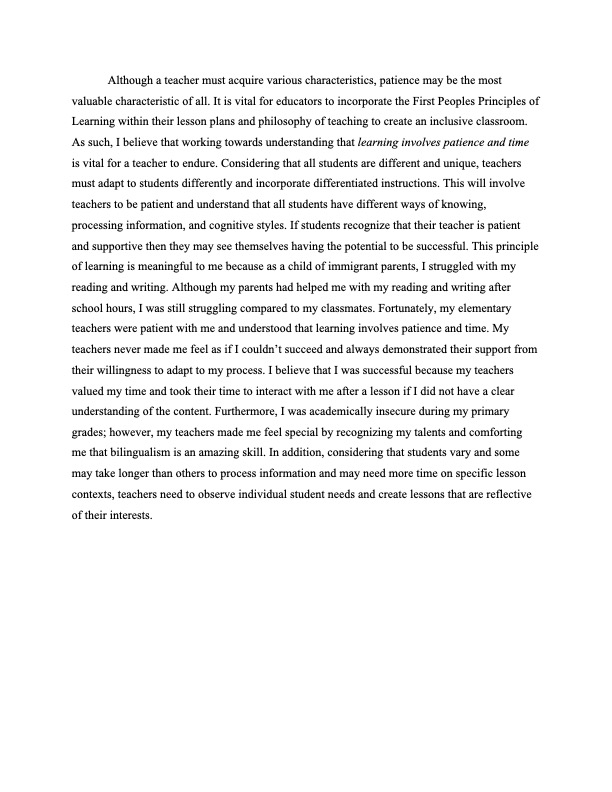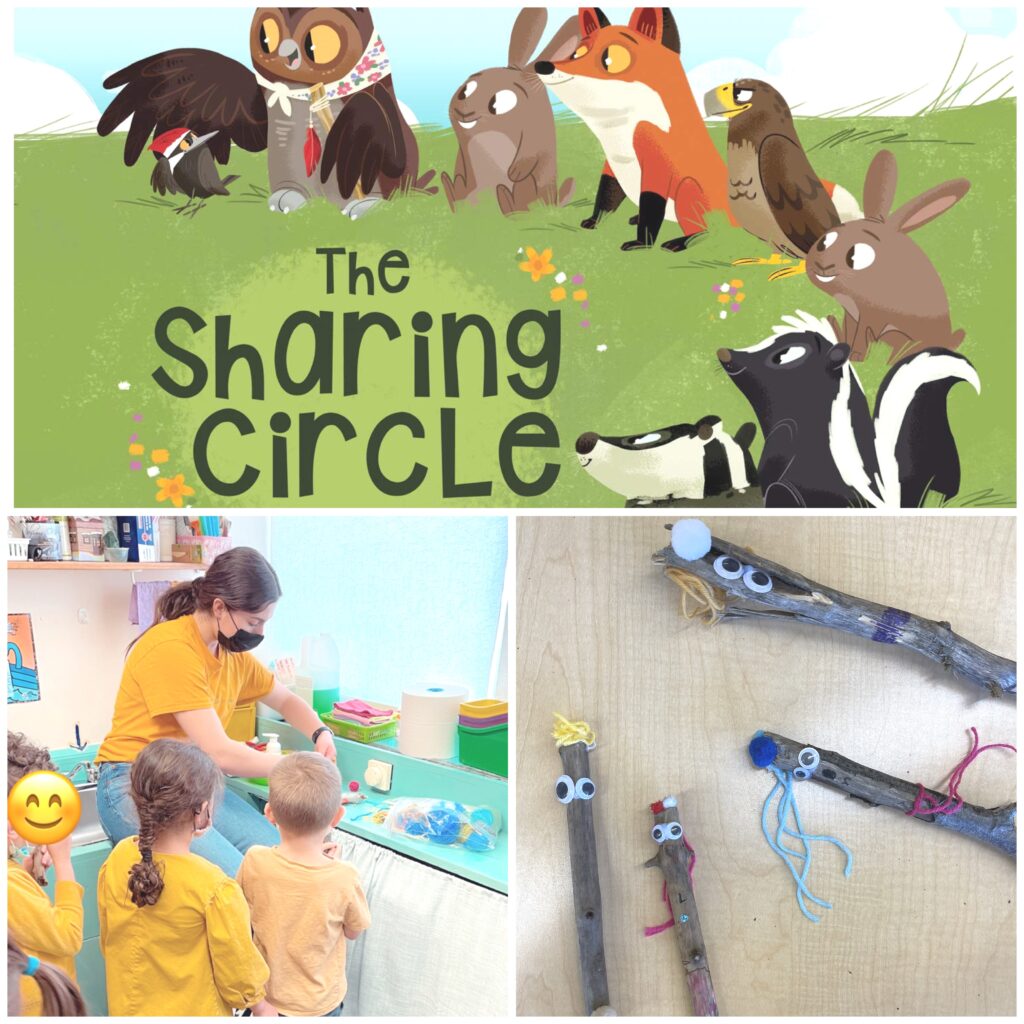
During my practicum in a kindergarten class, I decided to incorporate land-based learning activities into my lessons. Prior to this lesson, my students were learning about families and people that we consider to be a part of our families. In addition, I decided to create an interdisciplinary lesson incorporating fine arts, literacy, and social studies. This lesson included students thinking about family members that are not human – animals! Every student had the opportunity to go outside and find a stick that they wanted to decorate as their stick pet. Once students collected their sticks, I got them to sit in a circle and share with their peers and teachers their pets’ names and hobbies. I emphasized the importance of respect during the sharing circle and that if students are not comfortable sharing their pet’s names and hobbies then they are more than welcome to pass. During this lesson, students incorporated the principles of learning involves patience and time and learning ultimately supports the well-being of the self, the family, the community, the land, the spirits, and the ancestors.
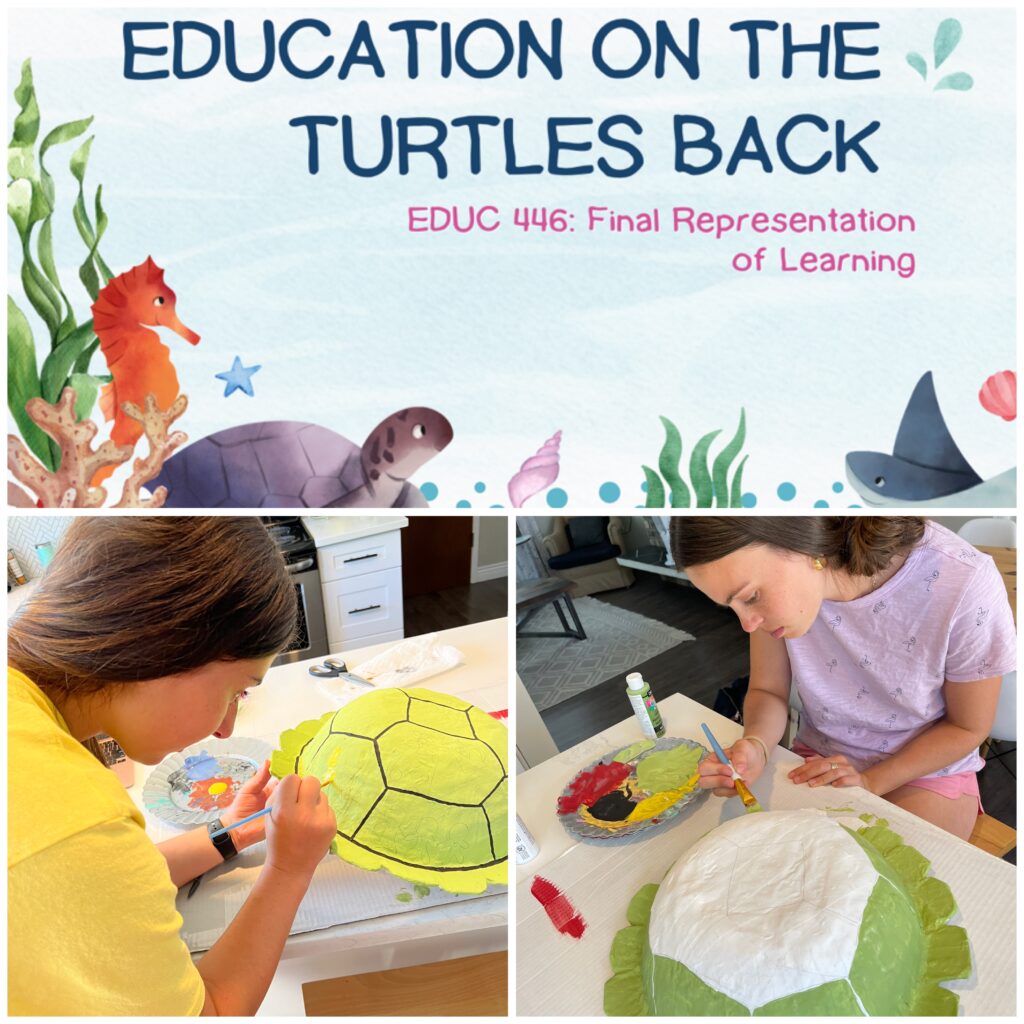
Our final project for EDUC 446 (Indigenous Education) modeled the Indigenous representation of the turtle. In many cultures, the turtle teaches us about patience, stability, grounding, protection, and earth connection. Further, this teaching demonstrates that all living things are connected. In connection to education, we chose the turtle to represent our educational journey as we felt it represented the 9 Rs, 9 Ls, and 9Ss like all living things are connected. This project incorporates the principles of learning as holistic, reflexive, reflective, experiential, and relational (focused on connectedness, reciprocal relationships, and a sense of please) and learning recognizes the role of Indigenous knowledge.
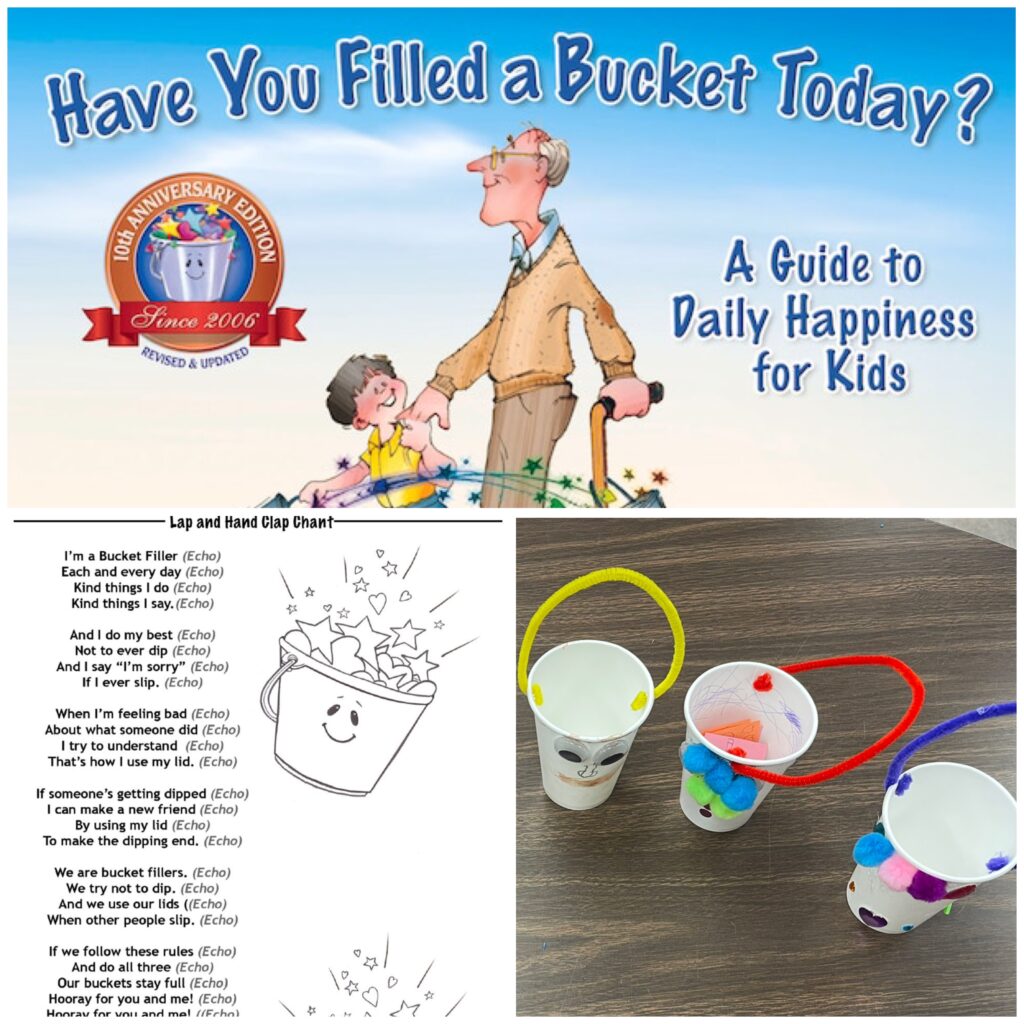
During this lesson, students focused on various aspects that contribute to being kind to others. While I read the story, Have you filled a Bucket Today? students were engaged and made real-life connections with how they treat their friends and other ways to show kindness to others. Students also learned ways to be kind to their families, teachers, and communities and how kindness can look in different situations. After storytime, students were given the opportunity to create their own buckets and write kind words or drawings to put in their classmate’s buckets. This lesson incorporated the principles of learning involves recognizing the consequences of one’s actions.
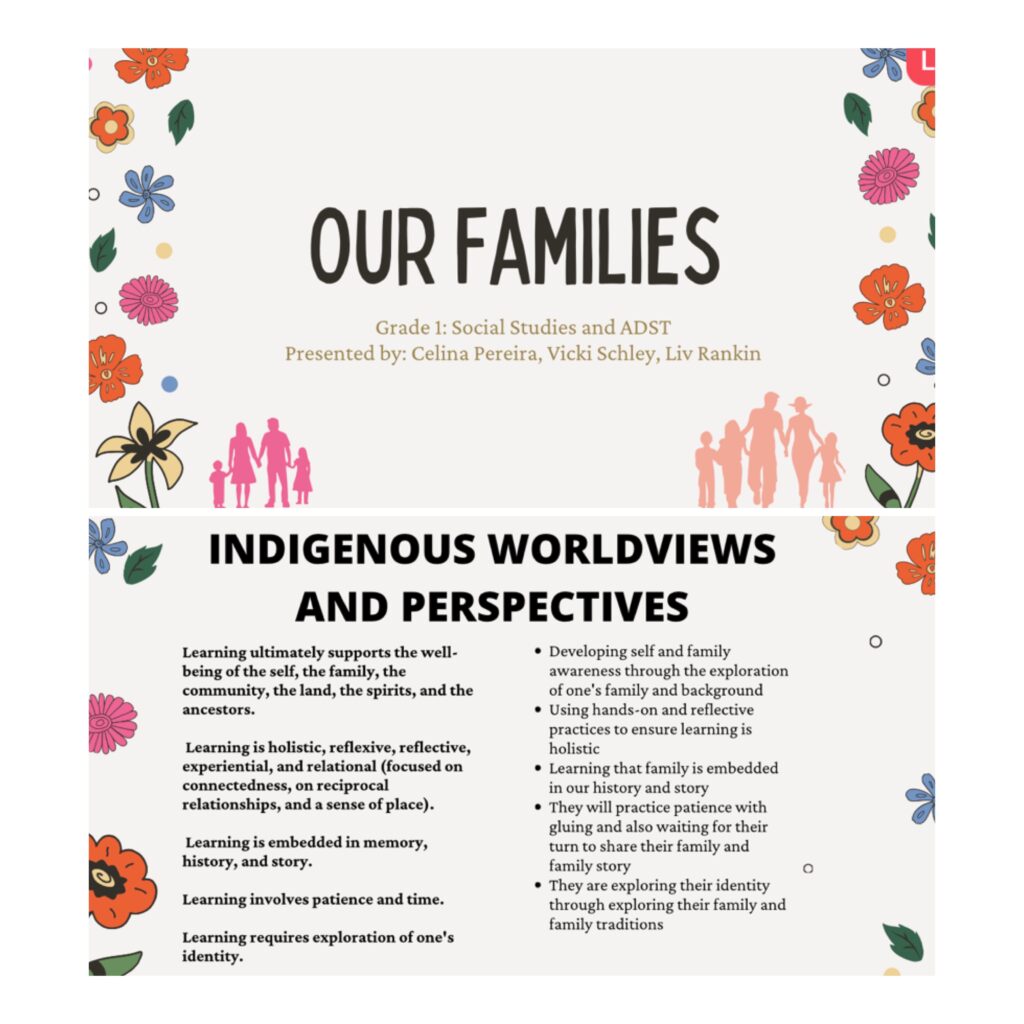
During this activity, my group focused on a potential lesson for grade 1 that focuses on having students facilitate an understanding of the importance of family differences and similarities and the value of interpersonal skills. Students will listen to the story And that’s their Family by Kailee Coleman to understand the connections and uniqueness of families. Students will then create their own paper dolls to describe their families. Their drawings inside of their dolls may include their family’s traditions, cultures, religions, stories, and hobbies. This lesson would incorporate the principles of learning that require exploration of one’s identity, learning is embedded in memory, history, and stories, and learning involves generational roles and responsibilities.
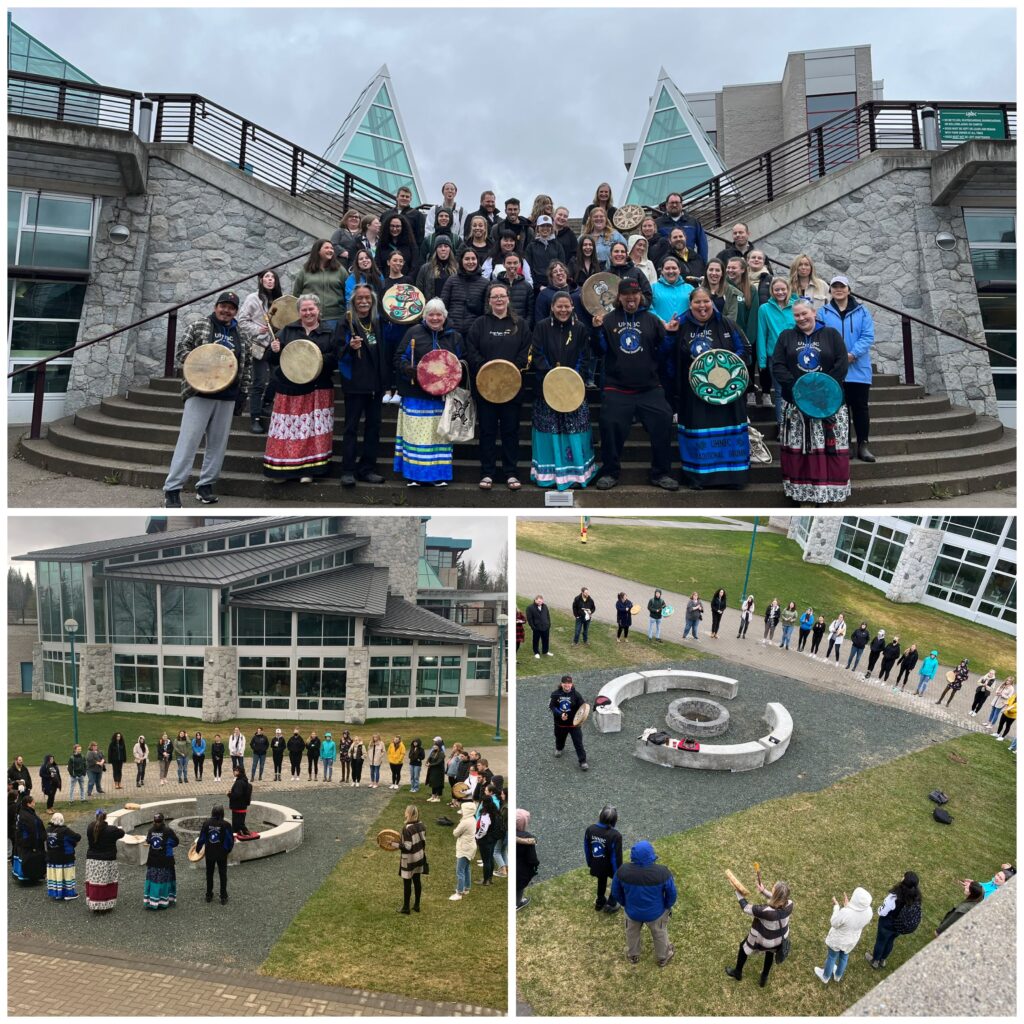
The UHNBC Drummers visited our cohort at the beginning of the spring term to share their songs and words. During this visit, I reflected on the principle of learning involves recognizing that some knowledge is sacred and only shared with permission and/or in certain situations. Throughout our experience in this program, we have learned that specific songs and dances belong to specific people and families and are not intended to be shared with others. Further, it is vital that we understand the importance of respectfully asking what can be used and shared. I believe that if songs and dances are authorized to be shared, they must be done in a respectful and authentic way.
